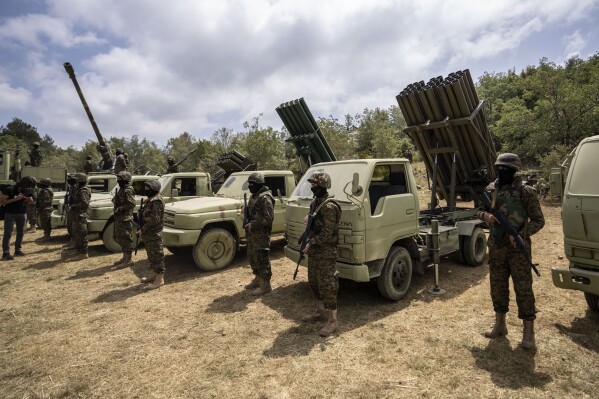Biden's Gaza Humanitarian Pier Has Spent More Time Being Fixed Than Moving Aid
The $230 million floating humanitarian pier attached to the coast of Gaza, a key element of President Joe Biden's plan to aid Palestinians during the Israel-Hamas conflict, has faced more time out of service than in operation. Since it was first first opened on May 17, the pier has been operational for only 12 out of 38 days.
Designed to bypass Gaza's frequently closed land borders and deliver aid via a route in the Mediterranean Sea, the Joint Logistics Over-the-Shore (JLOTS) has encountered numerous setbacks ever since Biden announced it during his State of the Union in March. Adverse weather conditions and logistical problems have necessitated its removal and reinstallation multiple times.
The U.S. resumed aid deliveries through the pier on Thursday, following its second dismantling on June 14 due to bad weather, according to the Pentagon. After the pier originally broke apart in rough seas, it was dismantled and sent to the Israeli port of Ashdod for repairs.
When the pier is working, security concerns have hampered its ability to effectively deliver the promised aid. On many of its operational days, pallets of food and medicine arriving by sea have piled up on the beach due to the absence of trucks needed to distribute the necessities to warehouses across the Gaza Strip. Some officials have questioned the project's viability under these conditions.
Dr. Hanan Balkhy, head of the World Health Organization's Eastern Mediterranean region, told the Associated Press on Monday that the pier "has supported a little bit, but it's not to the scale that is needed by any stretch of the imagination."
She emphasized the importance of land routes, most of which remain closed by the Israeli Defense Forces (IDF), for efficient and sufficient delivery of aid to the civilians sheltering in Gaza.
Humanitarian operations at the pier have faced additional challenges. The World Food Programme (WFP) suspended its aid distribution through the pier due to safety concerns following an IDF operation near the staging area on June 8, which resulted in the rescue of four Israeli hostages and many Palestinian casualties.
Distribution Problems
The construction of the pier, involving a floating dock anchored a few miles out to sea and a causeway attached to the Gazan coast, took over two months and required about 1,000 soldiers and sailors, along with a small flotilla of ships.
In late May, a U.S. soldier assigned to the pier mission was seriously injured and evacuated to a hospital in Texas in critical condition.
The 4,100 metric tons of aid delivered through the pier over the past five weeks have fallen well short of expectations. Significant quantities of aid remain stranded on the beach due to a lack of distribution capacity within Gaza.
That suggests that the issues have more to do with distribution than the pier itself, according to Mark Cancian, a senior adviser at the Center for Strategic and International Studies.
"The pier has, of course, had weather problems, but it's up and running. The inability of the United Nations (UN) on the ground to come up with a satisfactory distribution plan and to coordinate successfully with the Israelis has apparently brought the project to a near-halt," Cancian told Newsweek.
UNRWA, the UN relief agency for Palestinians and the largest such group operating in Gaza, has relied on local security forces to cover its aid convoys since the beginning of the war. However, the Israeli government has refused to deal with UNRWA, accusing the agency of aiding and abetting Hamas, which it denies.
For Cancian, these challenges were obvious from the start. Nearly all of the humanitarian supplies going into Gaza have relied on the acquiescence of Hamas, he said, which was "always uncertain."
While the Biden administration continues to publicly support the pier as a crucial conduit for aid deliveries, a report last week in the New York Times suggested that military officials are considering scrapping the project and dismantling the pier ahead of schedule, possibly as early as next month.
Following that report, the Pentagon denied that a decision had been made to dismantle the pier early.
"We have not established an end date for this mission as of now, contrary to some press reporting on the matter," said Pentagon spokesperson Maj. Gen. Patrick Ryder on Thursday.
Disclaimer: The copyright of this article belongs to the original author. Reposting this article is solely for the purpose of information dissemination and does not constitute any investment advice. If there is any infringement, please contact us immediately. We will make corrections or deletions as necessary. Thank you.
